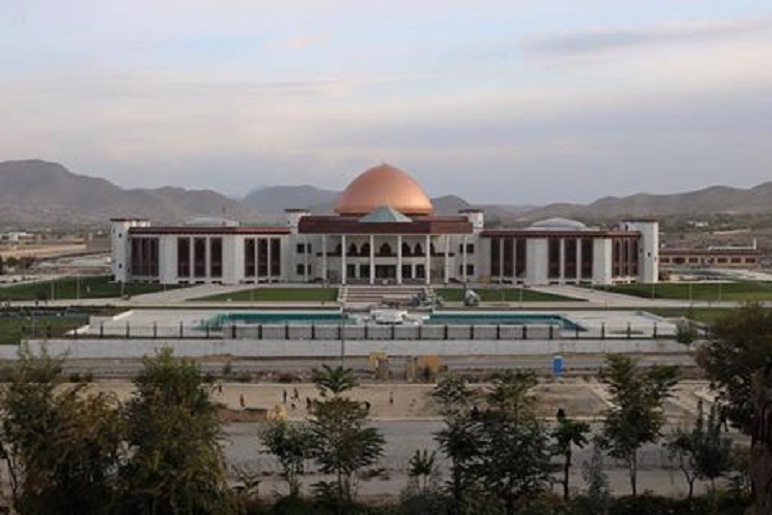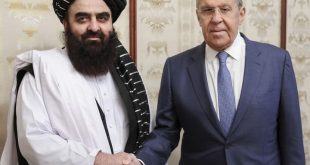By Farhad Naibkhel-KABUL: Legislators and political analysts have continued to lambaste members of the Wolesi Jirga for what they call the dual standard on disqualification of ministers who failed to spend the target (70 percent) development budget.
Expressing surprise and anger over decision of the MPs to give immunity to some ministers in the issue for which seven ministers were disqualified, they say that deals behind the closed doors and tribal affiliations saved the ministers, except seven.
Members of the Wolesi Jirga or Lower House of Parliament, with a majority vote, last week made decision to summon 19 ministers and numbers of departmental heads to brief legislators regarding their failure in spending budgetary allocations during the outgoing Afghan fiscal year.
The parliamentarians during the plenary session voted to summon those ministers and heads of independent departments, who failed to spend 70 percent of the allocated development budget this year.
Lawmakers insisted that those ministers who could not provide satisfactory answers must be dismissed, but in the past four days the government and people have witnessed clear contradiction in decision of the Wolesi Jirga members.
The paradox is that seven ministers were disqualified and rest of the others received vote of confidence. Though, all those summoned have spent less than 70 percent of development budget.
“Unfortunately, the lawmakers’ votes were not used according to the commitments and laws of the Wolesi Jirga. A large number of the legislators have not voted against ministers who failed to spend the target budget—70 percent,” said Ramazan Bashardost, a lawmaker.
He said that majority of MPs voted to summon 19 ministers who failed to spend the target development budget and dismiss those who could not provide “logical and acceptable” answers.
He said that on the first day of impeachment, majority of Wolesi Jirga members strictly followed the commitments and had sacked ministers of Foreign Affairs Salahuddin Rabbani, Labor and Social Affairs Nasrin Oryakhil, Public Works Mahmoud Baligh, but after that the MPs showed contradiction.
Giving an example, he said the minister of higher education Farida Mohmand, who had spent budget by 64.31 percent, was disqualified but the ministers of Justice, Energy and Water, Urban and Development, Counter Narcotics, Refugees, and Economic, who all had spent the development budget less than the minister of higher education, have received vote of confidence and remained as ministers.
He said that except the ministers of foreign affairs, education, and transport, no minister appeared before the lawmakers in the Wolesi Jirga to answer the questions and satisfy the legislators, but the MPs gave vote of confidence to most of them and rejected some others.
“Sadly, large number of lawmakers used their votes based on political and financial deals,” he said.
Sharif Balkhabi, another member of the Wolesi Jirga, termed tribal sensitivity and influence of government main reason behind the contradiction in lawmakers’ decision against the ministers.
He said that also scores of legislators used their votes based on personal consideration.
“In start, the lawmakers pledged to act according to the laws and considering the national interests, but later number of parliamentarians acted based on tribal affiliation. That’s why most of the ministers received vote of confidence and some of them were dismissed,” he said.
Ahmad Saeedi, a political analyst, said that summoning and disqualification of ministers was a political move rather than a lawful measure.
He said that relations between the government, particularly the president and the parliament, was the main reason behind “paradoxes in the Wolesi Jirga’s decision”.
It is pertinent to mention that till date the lawmakers have sacked seven ministers including ministers of Foreign Affairs Salahuddin Rabbani, Labor and Social Affairs Nasrin Oryakhil, Public Works Mahmoud Baligh, Education Assadullah Hanif Balkhi, Transport and Civil Aviation Mohammadullah Batash, Minister of Technology and Higher Education Farida Mohmand.
Ministers of Justice, Public Health, Energy and Water, Urban and Development, Counter Narcotics, Refugee and Economic, who all had spent development budget below 70 percent received vote of confidence and remained as ministers.
 Afghanistan Times
Afghanistan Times




